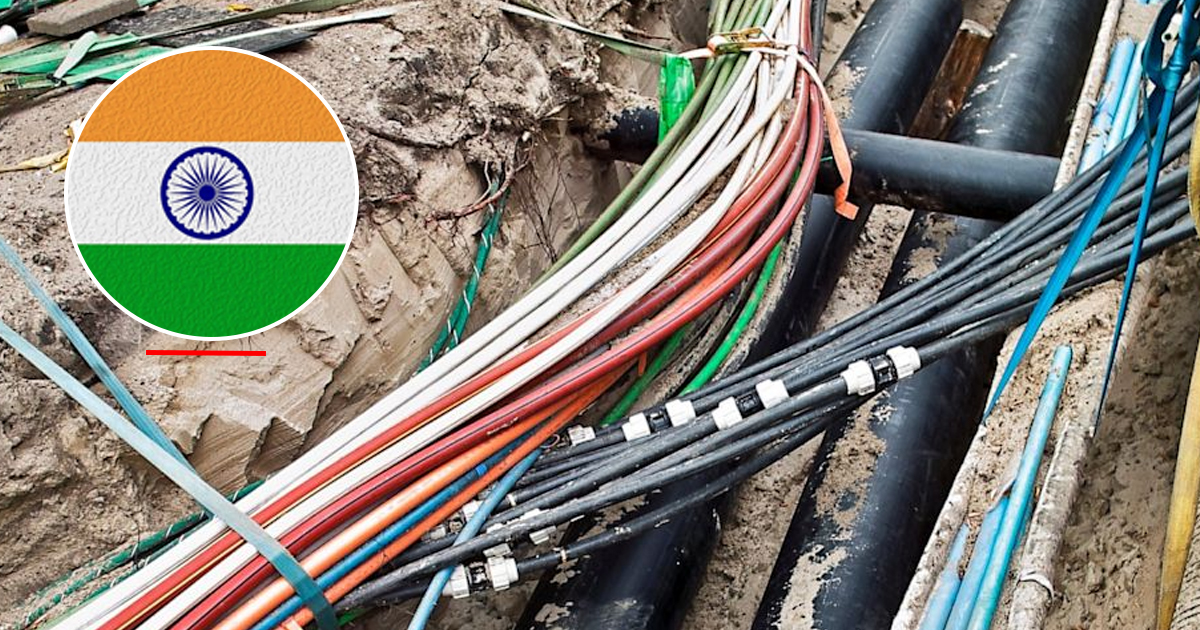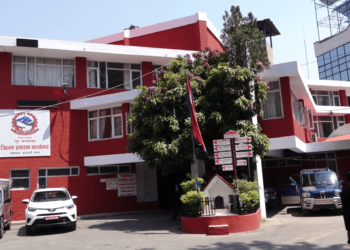KATHMANDU: It has been almost half a decade since the government began the project of underground cable management in the Kathmandu Valley.
The Nepal Electricity Authority (NEA) initiated this project in the Kathmandu Valley starting from February 2020.
Although an agreement was made to complete the underground cable management work within two and a half years of the contract, the project remains incomplete.
The Indian contractor company has stalled the work, citing various reasons including the COVID-19 pandemic.
Work on underground cable management began in the three districts of Upatyaka from February 2020.
As per the agreement, the completion date for the underground cable management in the Kathmandu Valley was set for July 2022.
However, due to the negligence of the contractor, the underground cable management work has come to a near standstill.
Slow progress in Lalitpur and Bhaktapur
Although some progress has been made in the Kathmandu area, the work in Lalitpur and Bhaktapur has been notably slow.
The work of laying underground cables in the areas under the Lalitpur Distribution Center is at a standstill with negligible physical progress.
Similarly, underground cable management in the Bhaktapur area has not gained any significant momentum, as confirmed by NEA spokesperson Chandan Kumar Ghosh.
According to him, the construction of 200 kilometers of underground cables in Lalitpur and Bhaktapur has yet to see any real progress.
While underground cable management in areas under the Lalitpur Distribution Center is about 10 percent complete, the physical progress in Bhaktapur is only around 5 percent, according to the Authority.
Better progress in Kathmandu
On the other hand, work on underground cables in areas under the Ratnapark and Maharajgunj Distribution Centers in Kathmandu has seen significant progress.
The work in the Ratnapark Distribution Center has reached 90% completion, while around 75 percent of the work has been completed around the Maharajgunj Distribution Center.
Ghosh also mentioned that the underground cable laying work in the Kirtipur area of Kathmandu has reached its final stage.
Out of the 630 kilometers of underground cable work under the Ratnapark Distribution Center, 500 kilometers have been completed.
The underground cable management work in areas such as New Road, Ason, and the market areas has been completed, giving the areas a cleaner and more organized look.
Similarly, in areas considered central to Kathmandu, such as Baneswor, Balaju, Putalisadak, New Road, Lainchaur, Maitighar, Thapathali, Tinkune, and around the airport, underground cable management work has also entered the final stages.
Extension of deadline
The Indian contractor company KEI Industries Limited was awarded the contract to lay underground electrical cables under the Maharajgunj and Ratnapark Distribution Centers in Kathmandu.
Another Indian company, Larsen & Toubro Limited (LNT Group), was given the contract to lay cables in places including Baneshwor, Balaju, Kuleshwor, Kalanki, Kirtipur, Jorpati, Sankhu, and Pepsicola.
Although the work started in February 2020, the contractor company had committed to completing the work by July 2022 as per the original agreement.
However, after already taking two and a half years, the contractor requested additional time.
Initially, the contractor was granted a 15-month extension citing the COVID-19 pandemic as an excuse, pushing the deadline to October 2023.
Despite the extended period, the contractor failed to complete the work. Since then, the government has repeatedly extended the deadline, as per the terms of the agreement, the project has already been postponed by two and a half years.
Why the delay?
The primary reason for the delay in underground cable management in the Kathmandu Valley has been a lack of inter-governmental coordination.
Roads must be dug up to lay the underground electrical wires, but delays in obtaining permission from the Roads Department, poor coordination with other agencies, the COVID-19 pandemic, and other external factors have contributed to the delay.
NEA spokesperson Ghosh stated, “Getting permission to dig the roads from the Roads Department has been difficult. Moreover, there has been poor coordination with agencies responsible for water supply, sewerage, and telecommunication, lack of maps, and a general lack of coordination in the planning stage.”
“Despite these challenges, physical progress in Kathmandu is still promising,” Ghosh added.
The underground cable management work in the Kathmandu Valley is being carried out under three separate contracts.
The total estimated cost is seven billion rupees, and the delays are expected to increase the overall cost.
The project is being financed with a USD 150 million loan from the Asian Development Bank (ADB). Despite the extended deadlines, the work is still not complete.
In the final phases in Bharatpur and Pokhara
In addition to the Kathmandu Valley, the government has also initiated underground cable management work outside the valley.
In Bharatpur (Chitwan) and Pokhara (Kaski), underground cable laying has been underway for the past two years.
According to the NEA, the work of laying underground cables in both Bharatpur and Pokhara is in the final stages.
The work of laying 400 kilometers of underground cables in both cities has been completed, with 90 percent completion in Bharatpur and 85 percent completion in Pokhara.
The contract for laying underground cables in these cities has been awarded to Tata Projects Limited of India.









Comment